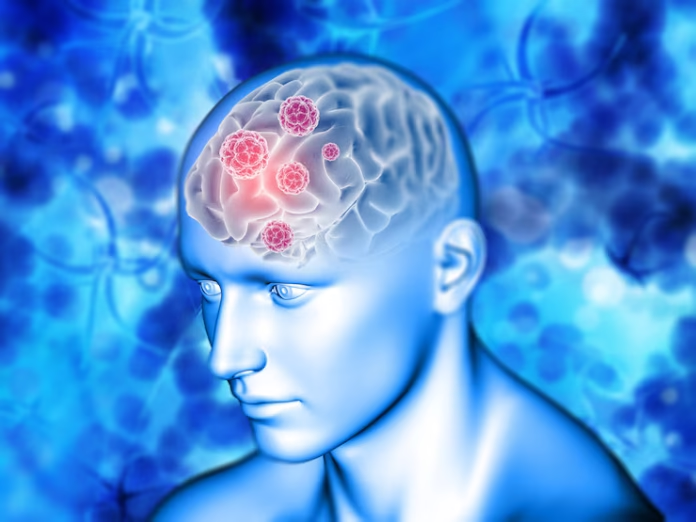Neurological diseases encompass a wide range of disorders that affect the brain, spinal cord, and nerves throughout the body. These conditions can significantly impact a person’s quality of life, leading to various symptoms that can range from mild to severe. With the increasing prevalence of neurological disorders, it is essential to understand their causes, symptoms, diagnosis, and treatment options. DoctorHub360.com serves as a valuable resource for patients and caregivers seeking information about neurological diseases. In this article, we will explore the various aspects of neurological diseases, drawing insights from the wealth of information available on DoctorHub360.com.
What Are Neurological Diseases?
Neurological diseases are disorders that affect the nervous system, which includes the brain, spinal cord, and peripheral nerves. These diseases can disrupt normal functioning, leading to a variety of symptoms that can affect movement, sensation, cognition, and overall health. Some common neurological diseases include:
-
Alzheimer’s Disease: A progressive neurodegenerative disorder that leads to memory loss, cognitive decline, and changes in behavior.
-
Parkinson’s Disease: A movement disorder characterized by tremors, stiffness, and difficulty with balance and coordination.
-
Multiple Sclerosis (MS): An autoimmune disease that affects the central nervous system, leading to a range of symptoms including fatigue, weakness, and vision problems.
-
Epilepsy: A neurological disorder characterized by recurrent seizures due to abnormal electrical activity in the brain.
-
Stroke: A medical emergency that occurs when blood flow to the brain is interrupted, leading to brain damage and potential long-term disability.
-
Migraine: A type of headache that can cause severe pain, nausea, and sensitivity to light and sound.
-
Amyotrophic Lateral Sclerosis (ALS): A progressive neurodegenerative disease that affects motor neurons, leading to muscle weakness and atrophy.
-
Huntington’s Disease: A genetic disorder that causes the progressive breakdown of nerve cells in the brain, leading to movement, cognitive, and psychiatric disorders.
Causes of Neurological Diseases
The causes of neurological diseases can vary widely depending on the specific condition. Some neurological disorders are genetic, while others may result from environmental factors, infections, or lifestyle choices. Here are some common causes:
-
Genetic Factors: Many neurological diseases have a hereditary component. For example, Huntington’s disease is caused by a mutation in a specific gene, while certain forms of epilepsy may run in families.
-
Infections: Some neurological diseases can be triggered by infections. For instance, viral infections like meningitis can lead to inflammation of the brain and spinal cord.
-
Autoimmune Responses: In conditions like multiple sclerosis, the immune system mistakenly attacks healthy nerve cells, leading to inflammation and damage.
-
Trauma: Physical injuries to the head or spine can result in neurological disorders. Traumatic brain injuries (TBIs) can lead to long-term cognitive and physical impairments.
-
Lifestyle Factors: Poor diet, lack of exercise, and substance abuse can contribute to the development of certain neurological diseases. For example, excessive alcohol consumption can lead to Wernicke-Korsakoff syndrome, a disorder affecting memory and coordination.
-
Age: The risk of developing neurological diseases often increases with age. Conditions like Alzheimer’s and Parkinson’s are more common in older adults.
Symptoms of Neurological Diseases
The symptoms of neurological diseases can vary widely depending on the specific condition and the areas of the nervous system affected. Common symptoms include:
-
Cognitive Changes: Memory loss, confusion, difficulty concentrating, and changes in behavior can indicate neurological issues.
-
Motor Symptoms: Weakness, tremors, stiffness, and difficulty with coordination and balance are common in conditions like Parkinson’s disease and ALS.
-
Sensory Changes: Numbness, tingling, and changes in vision or hearing can occur in various neurological disorders.
-
Seizures: Recurrent seizures are a hallmark of epilepsy and can manifest in different forms, including convulsions and absence seizures.
-
Headaches: Chronic headaches, particularly migraines, can be a symptom of underlying neurological conditions.
-
Mood Changes: Depression, anxiety, and other mood disorders can be associated with neurological diseases, particularly those affecting the brain.
Diagnosis of Neurological Diseases
Diagnosing neurological diseases often involves a comprehensive evaluation by a healthcare professional. The process may include:
-
Medical History: The doctor will take a detailed medical history, including any family history of neurological disorders, symptoms experienced, and any relevant lifestyle factors.
-
Neurological Examination: A thorough neurological exam assesses motor function, sensory perception, reflexes, and cognitive abilities.
-
Imaging Studies: Techniques such as MRI (Magnetic Resonance Imaging) and CT (Computed Tomography) scans can help visualize the brain and spinal cord, identifying any abnormalities or damage.
-
Electrodiagnostic Tests: Tests like EEG (Electroencephalogram) and EMG (Electromyography) can measure electrical activity in the brain and muscles, helping to diagnose conditions like epilepsy and neuromuscular disorders.
-
Laboratory Tests: Blood tests and other laboratory analyses may be conducted to rule out infections, autoimmune diseases, or metabolic disorders that could be contributing to neurological symptoms.
-
Cerebrospinal Fluid Analysis: In some cases, a lumbar puncture may be performed to analyze cerebrospinal fluid for signs of infection or inflammation.
Treatment Options for Neurological Diseases
Treatment for neurological diseases varies widely depending on the specific condition, its severity, and the individual patient’s needs. Here are some common treatment approaches:
-
Medications: Many neurological disorders are managed with medications. For example, antiepileptic drugs are used to control seizures in epilepsy, while dopaminergic medications can help manage symptoms of Parkinson’s disease.
-
Physical Therapy: Rehabilitation through physical therapy can help improve mobility, strength, and coordination in patients with neurological disorders. Occupational therapy may also assist with daily living activities.
-
Surgery: In some cases, surgical intervention may be necessary. For instance, deep brain stimulation is a surgical treatment for Parkinson’s disease that involves implanting a device to help regulate abnormal brain activity.
-
Lifestyle Modifications: Patients may be advised to make lifestyle changes, such as adopting a healthier diet, engaging in regular exercise, and avoiding substances that could exacerbate their condition.
-
Supportive Care: Support groups and counseling can provide emotional support for patients and their families, helping them cope with the challenges of living with a neurological disease.
-
Clinical Trials: Patients may have the option to participate in clinical trials for new treatments or therapies, providing access to cutting-edge research and potential advancements in care.
Living with Neurological Diseases
Living with a neurological disease can be challenging, both for patients and their families. It is essential to have a strong support system in place, including healthcare providers, family members, and friends. Here are some strategies for coping with the challenges of neurological diseases:
-
Education: Understanding the specific neurological condition can empower patients and caregivers to make informed decisions about treatment and management.
-
Communication: Open communication with healthcare providers is crucial. Patients should feel comfortable discussing their symptoms, treatment options, and any concerns they may have.
-
Self-Care: Prioritizing self-care is vital for managing stress and maintaining overall well-being. This may include engaging in hobbies, practicing mindfulness, and ensuring adequate rest.
-
Advocacy: Patients and caregivers can advocate for themselves and others by raising awareness about neurological diseases and supporting research initiatives.
-
Community Resources: Many organizations and support groups offer resources for individuals living with neurological diseases. These can provide valuable information, emotional support, and opportunities for social interaction.
Conclusion
Neurological diseases are complex and multifaceted, affecting millions of individuals worldwide. Understanding these conditions, their causes, symptoms, and treatment options is essential for patients and caregivers alike. DoctorHub360.com serves as a valuable resource for those seeking information and support related to neurological diseases. By staying informed and proactive in managing these conditions, individuals can improve their quality of life and navigate the challenges that come with neurological disorders. Whether through medical treatment, lifestyle changes, or community support, there is hope for those affected by neurological diseases.


